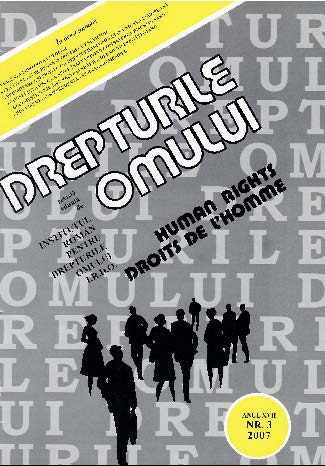Relația dintre stat și comunitățile religioase în Europa
Relationship between the State and the religious communities in Europe
Author(s): Viorel DimaSubject(s): Human Rights and Humanitarian Law, Public Administration, Theology and Religion
Published by: Institutul Român pentru Drepturile Omului
Keywords: State; Church; religious communities; religious freedom;
Summary/Abstract: In all countries of the European Union, the religious cult organizations have either the legal status of a public law organization or a non-profit one, the latter also being able to enjoy the status of a public utility organization. Equality among religious cult organizations is achieved either by means of “downward leveling”, by reducing the privileges of the favoured organizations down to the level of the others, or by means of “upward leveling”, which consists in an extension of the privileges enjoyed by favoured groups to the others as well. The method that is used mostly is the “upward leveling”. Thus, the religious groups that are favoured are more and more numerous, and broader equality involves an increase of the contractual relationships between religion and the State. The broadening of equality among religious cult organizations and, implicitly, the broadening of the contractual relationships between religion and the State, corroborated with the preoccupation for good governance and the guarantee of the religious rights and freedoms, resulted in the fact that in Europe the tendencies towards the laicization of the State and the separation between the State and the Church have become stronger, which led to the categorization of religious cult organizations as non-profit organizations. Under the Act of religious freedom and the organization of the cults, adopted last year, the recognized cults were acknowledged the status of private legal persons of public utility.
Journal: Drepturile omului
- Issue Year: 2007
- Issue No: 3
- Page Range: 43-53
- Page Count: 11
- Language: Romanian

